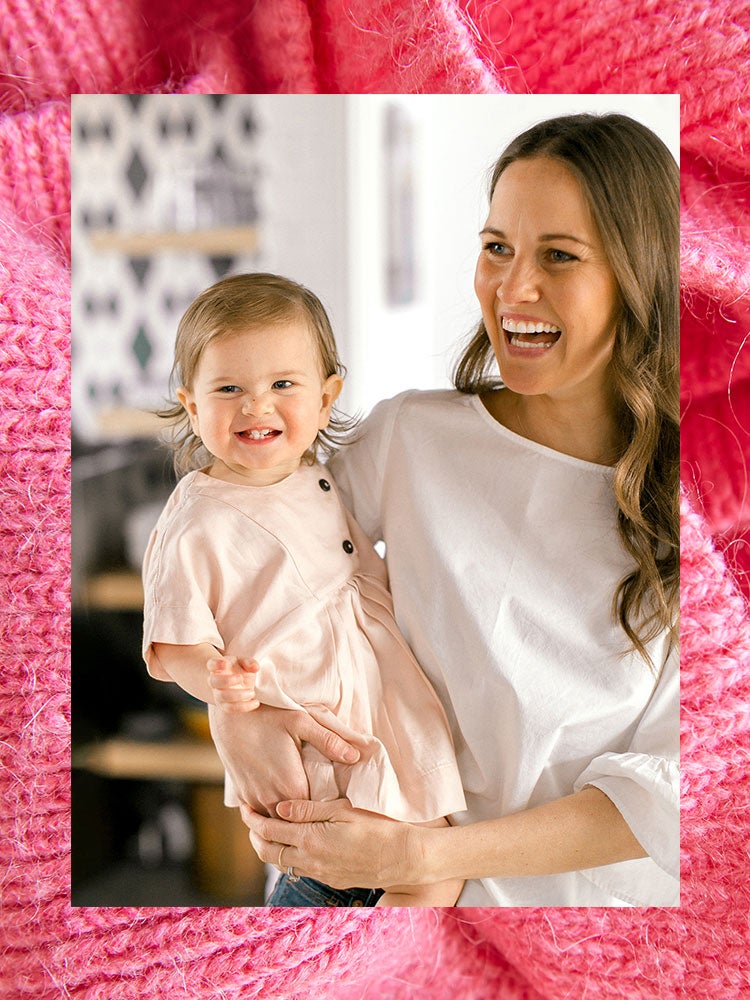Branch Basics Cofounder Kelly Love’s Guide to an All-Natural Pregnancy
Four ingredients she’s staying away from.
Updated Oct 12, 2018 4:12 PM
We may earn revenue from the products available on this page and participate in affiliate programs.
For about 10 years, Kelly Love has been gradually removing all the bad influences from her life—when it comes to her cleaning supplies at least. As one of the founders of Branch Basics, she eschews all kinds of products with extra-long ingredient lists in favor of simpler, uncomplicated alternatives. And when she found out she was pregnant for the second time, she became even more diligent in her efforts to stay away from toxins.
“I switched to a more natural and holistically focused lifestyle about 10 years before getting pregnant with my first daughter at age 30,” says Love. “Our cofounder, Marilee, has been way ahead of the curve on harmful ingredients worth avoiding, so she enlightened me when I was in my early 20s. I’m extremely grateful, since preconception is an important time to be mindful of what goes in, on, and around your body—but even though I was aware pre-pregnancy, now I’m definitely more picky about avoiding and reducing chemical exposures when possible.”
As she gears up for the birth of baby number two, Love’s wellness routine includes plenty of naps, frequent baths, lots of funny TV shows, Pilates, and nettle-leaf-and-red-raspberry-leaf tea. Most important, though, are the things she’s cut out—in light of Branch Basic’s new #TossTheToxins campaign—which she has shared with us, below.
Pesticides
“We say pesticides are the most common category of products that people expose themselves to at home. It’s a funny thing, because a lot of people get regular pest control. People will spend all this money on organic food and then have the exterminator come every month—they just don’t make the connection that they’re filling their homes with pesticides even though they may be avoiding them in the grocery store. Even cleaning products that are disinfectants and sanitizers contain EPA-registered pesticides.
Studies have shown they can have such an impact on our brains and our developing nervous systems. So I got an Austin Air air purifier for the baby’s room as well as an organic crib mattress and 100 percent organic cotton bedding.”
Synthetic Fragrances
“A synthetic fragrance can be a proprietary concoction of thousands of chemicals—more than 3,000 chemicals, according to a study by the Environmental Working Group. Basically, the different chemicals fall into the categories of neurotoxins (which affect nerve tissue), asthmagens (which can cause asthma), endocrine disrupters (which affect hormones), obesogens (which affect metabolic function), and carcinogens (which can cause cancer).
That’s why you always want to choose fragrance-free or high-quality essential oils. It’s so important to note the difference between fragrance-free and unscented—unscented can mean nothing; it can still contain fragrance chemicals for the purpose of masking odor. I’ll even call hotels the day before check-in and request my room is fragrance-free!”
Flame Retardants and Formaldehyde
“We’ve avoided flame retardants and formaldehyde in other places in the home as well as the nursery. I was adamant about using all nontoxic building materials in our recent renovation because I knew we would be trying to get pregnant.
When you’re thinking of the items to put on your baby’s registry, make note of these ingredients in car seats and strollers. A lot of companies are starting to remove them, but both are said to be carcinogens, and flame retardants are endocrine disrupters, as well. I used the Britax B-Safe 35 Elite Infant Car Seat and the Britax B-Agile stroller for my first child. However, if I were buying now, I might invest in the Uppababy Mesa car seat and Uppababy Vista stroller system.”
Excitotoxins
“Excitotoxins in food (like MSG, guar gum, and “natural flavors”) reportedly overexcite our brain cells and can really impact neurological function: brain function and also our emotions and behavior. So they can make you irritable and moody. They can create anything from brain fog to severe neurological disorders over time, and can also contribute to gut inflammation. As your baby’s brain and gut are developing, these are things that are key to avoid in your diet as much as possible. I do eat more protein-dense foods. If you want to get a little weird (this isn’t something that I eat when I’m not pregnant!), I pick up small pieces of frozen raw liver at the farmers’ market. It’s a superfood for you and the baby.”
Going all-natural is never a bad idea—but if you hear that glazed doughnut calling your name, we won’t hold you back.
See more wellness: Are You Napping Enough? What Happens to Your Body When You Get Acupuncture Every Week Could You Go Trash-Free for 24 Hours?
